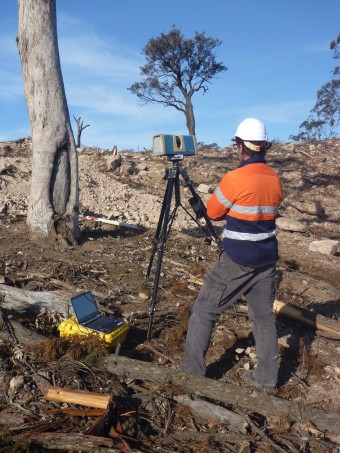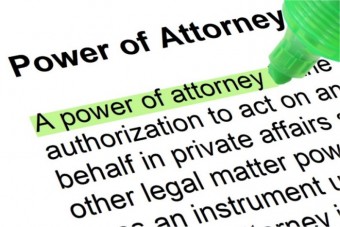BY NATALIE SMYTH
On 25 February 2016 the Tax and Superannuation Laws Amendment (2015 Measures No.6) Act 2016 was passed by parliament and received Royal Assent, introducing the new Foreign Resident Capital Gains Tax (CGT) Withholding Regime. A new measure, which is designed to assist the Commissioner of Taxation with the collection of foreign resident capital gains tax liabilities.
The new regime, which will take effect from 1 July 2016, imposes a position obligation on purchasers of certain Australian assets to withhold 10% of the first element cost base of the asset (usually the purchase price) when acquired from a “foreign resident” vendor, and pay it directly to the Australian Taxation Office (ATO) prior to or upon settlement.
The withholding regime will apply unless the vendor is able to supply the purchaser with sufficient proof of their Australian tax residency, in the form of a clearance certificate or declaration.
If you are a prospective purchaser and the new regime applies to your purchase, it is important that you have an understanding of your withholding obligations under the new law, and that you have considered the practical implications that the regime will have on the process and timing of the transaction.
Which assets and transactions will the new regime apply to?
The new regime applies to transactions for the acquisition of certain Australian assets, with a market value of or over $2 million, including:
- Taxable Australian Real Property (TARP) – land, buildings, residential and commercial property;
- Lease premiums paid for the grant of a lease over real property in Australia;
- Mining, quarrying or prospective rights;
- Indirect Australian real property interests (interests in Australian entities whose majority assets consist of the above such property interests); and
- Options or rights to acquire property.
Which assets and transactions are excluded?
Purchasers will be exempt from withholding obligations in the following situations:
- Transactions involving direct and indirect Taxable Australian Real Property interests, valued less than $2 million;
- Transactions conducted through a stock exchange or brokerage system;
- Certain arrangements that are subject to pre-existing withholding obligations;
- Securities lending arrangements; and
- Transactions involving vendors who are under external administration or subject to formal insolvency/bankruptcy proceedings.
What are the practical implications of the new regime?
For direct land transactions, Australian resident vendors will now need to obtain a clearance certificate from the ATO, which will need to be provided to the seller prior to Settlement. The ATO have indicated that requests for clearance certificates can take up to 28 days to process. It is therefore important that both purchasers and vendors factor this requirement when calculating settlement dates. [1]
For transactions involving sales of interests in landholding entities, or grants of options or rights, vendors may provide purchasers with a written declaration stating that they are an Australian resident. Declarations are valid for 6 months from the date they are declared.
Residency of the vendor
The withholding obligations apply to purchasers of certain Australian assets from foreign resident vendors only. Often purchasers will have limited information about vendors, however, it is up to the purchaser to determine whether or not the vendor is a foreign resident for tax purposes.
Importantly, withholding obligations apply in situations where, at the time of entering in to the transaction:
- The purchaser reasonably believes that the vendor is a foreign resident, or;
- The purchaser does not reasonably believe that the vendor is an Australian resident, and either:
- the vendor has an address outside of Australia according to any record that is in the purchaser’s possession, or
- the purchaser is asked to provide a related financial benefit to the vendor to a place outside of Australia. [2]
Purchasers who are provided with a false declaration from vendors for purchases of other assets other than TARP assets are not subject to the withholding obligation, provided that they are not aware that the declaration is false.
Penalties and repercussions for non-compliance
Purchasers who fail to pay the withholding amount to the ATO on or before the date of settlement will face a penalty equal to the amount that was required to be withheld, and may also be required to pay additional interest on that amount to the ATO.
Important things for purchasers to look out for:
- Withholding obligations will apply in situations where clearance certificates are over 12 months old, and are therefore invalid.
- Withholding obligations will apply in the existence of any discrepancies between the name of the vendor on the clearance certificate and the relevant contract;
- Contracts entered into for the acquisition of certain Australian assets before 1 July 2016, will be subject to the new laws, if they are due to settle on or after 1 July 2016.
- Both purchasers and vendors will now need to factor in the time required in obtaining clearance certificates when calculating settlement time frames.
Other implications:
The Queensland Law Society in conjunction with REIQ have amended the standard REIQ contracts for residential and commercial sales to reflect the new tax withholding regime. For contracts entered into on and from 1 July 2016, the new editions will need to be used.
If you have any questions with respect to the new foreign resident CGT regime, or if you are unsure as to whether the withholding obligations apply to your purchase, please don’t hesitate to give our friendly staff a call at either our Kelvin Grove or Wilston Offices.
[1] https://www.ato.gov.au/General/New-legislation/In-detail/Direct-taxes/Income-tax-for-businesses/Foreign-resident-capital-gains-withholding-payments/
[2] Explanatory Memorandum Tax and Superannuation Laws Amendment (2015 Measures No. 6) Bill 2015
 TED BESLEY – SPECIAL COUNSEL
TED BESLEY – SPECIAL COUNSEL









